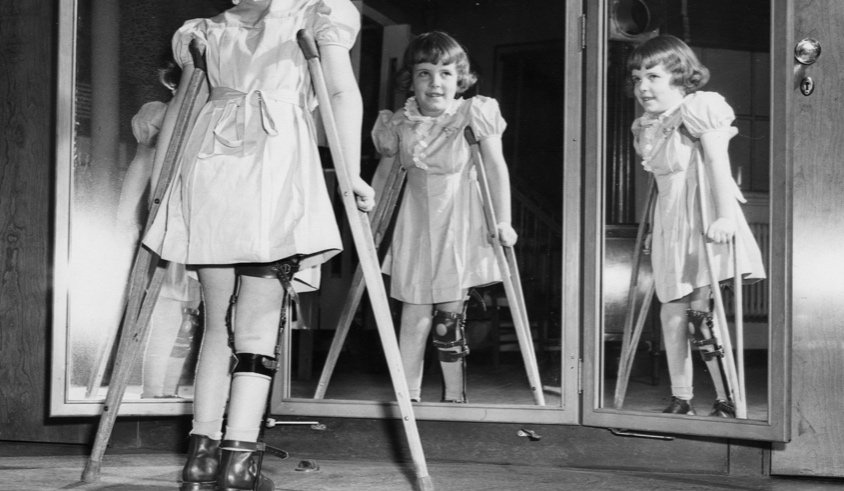I See You
Ona Gritz
Word Count 416
There aren’t many mirrors that will show a palsied girl her limp. The one in the shoe store I could prepare for. The one in an empty storefront always caught me off guard. None of the mirrors at home would reveal it. You need space to capture the awkward moves.
In my teens and early twenties, I made up for this by finding fault elsewhere. Hair in waves that never listened. Nose both too long like my mother’s and too wide like my dad’s. Chin speckled with blackheads. I buried the rarely seen limp in the messy closet of my consciousness.
At twenty-four, I found myself following women down winding West Village streets. One with shapely arms who swung on Canadian crutches. One whose cutoffs revealed silvery prosthetic legs. One with a tilt so subtle it may have only meant that her sandals pinched. I kept my distance. If my target glanced in my direction, I feigned interest in a shop window.
Target? Wrong word choice. I was asking these women to be mirrors for me. I wanted to know if someone a little bit damaged could still be considered beautiful or even okay. Reflective glass had yet to answer that question, so I became a stalker, believing a good look at a stranger might erase the distortions that got in the way when I tried for a glimpse of myself.
I was an MFA student then and, about a year into this quest, a woman approached me after a reading to talk about my poems. She was warm, perceptive, but that’s not what led me to follow her to the restroom. It was her body, split in half like mine by cerebral palsy, though our equators differed. Hers at the waist, the palsy in her legs only. Mine a vertical divide, right side disabled, left not.
Soon, tea growing cold and muffins uneaten in a coffee shop on Broadway, we broke open with stories. The leg braces of childhood. Rough physical therapists. The easy cruelty of other kids. Dating or wanting to. Passing or pretending to believe so. The exhaustion of it all. But also, our shared awe of Frida Kahlo, and of each other, though we’d only just met. Our hunger for the very conversation we were in.
This, I realized as we each finally reached for the baked good before us, is how a person becomes another’s mirror. One of you says, “I see you.” The other, “I see you too.”
—
Ona is a poet, memoirist, essayist, and children’s author. A longtime columnist for Literary Mama, her writing has appeared in The New York Times, Ploughshares, Brevity, Salon, and River Teeth, and been twice listed as Notable in The Best American Essays. Her most recent book, Present Imperfect, is a collection of essays.
